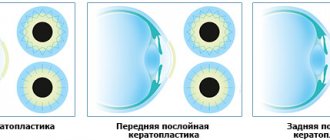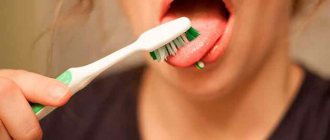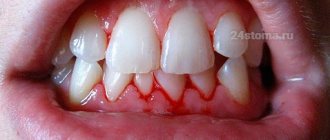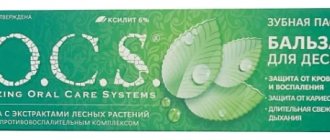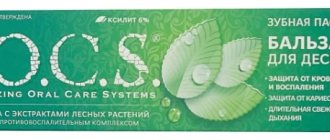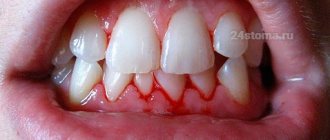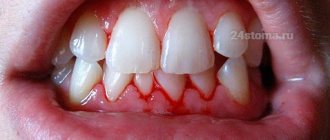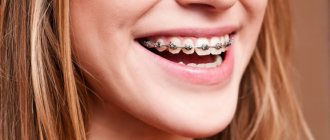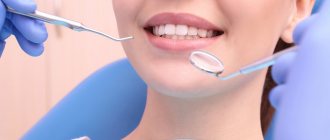October 10, 2021
Anemia is a decrease in hemoglobin content and/or a decrease in the number of red blood cells per unit volume of blood, leading to a decrease in oxygen supply to tissues
What is anemia?
Anemia is a decrease in hemoglobin content and/or a decrease in the number of red blood cells per unit volume of blood, leading to a decrease in the supply of oxygen to tissues. The diagnosis of anemia is made when hemoglobin decreases below 130 g/l in men and below 115 g/l in women.
In children, the age of the child is taken into account when diagnosing anemia. Anemia is classified depending on the cause and mechanisms of occurrence, as well as by color index. The severity depends on the decrease in hemoglobin levels in the blood and is divided into: mild, moderate and severe.
In the initial stages of the disease, a person feels constant fatigue and decreased performance. If you perform a laboratory blood test with these symptoms, it will determine a decrease in the level of hemoglobin and red blood cells. low hemoglobin is a very common ailment that occurs in both adults and children. This phenomenon can develop for a number of reasons and is a serious disease that must be treated. Otherwise, anemia can cause significant damage to health.
Use of mumiyo for the treatment of periodontal disease
Periodontal disease is a common disease that can even lead to tooth loss. But not everyone knows how effective mumiyo is for periodontal disease. But this safe natural remedy can help in the fight against the disease in question even in its last stages! It is only important to choose the right mummy and use it correctly.
An effective treatment regimen for periodontal disease using mumiyo, honey and milk
You need to take 0.2 g of mumiyo and dissolve it in warm milk and honey, maintaining a ratio of 1:20. You should drink this “cocktail” twice a day for 25 days (and once before bed). And to ensure maximum effect, it is additionally recommended to carry out local treatment of gums using a 5% aqueous solution of the product in question - simply apply this solution to damaged gums using a cotton swab.
First, due to periodontal disease, the sensitivity of the gums changes, then the gums swell and begin to hurt, and over time they bleed, and the teeth become loose. But the use of mumiyo for periodontal disease can effectively solve the problem at any stage of the disease. However, it should be noted that you should not use tablets for treatment, but exclusively natural mumiyo.
Our store
Antibiotics
Since the treatment is based on an antimicrobial method, taking antibiotics is inevitable for this disease. For periodontal disease, broad-spectrum antibiotics are usually prescribed, as they can destroy the maximum number of pathogenic bacteria.
Before starting treatment with tablets, it is necessary to do a special bacterial test to determine the sensitivity of bacteria to the prescribed antibiotic. If the patient does not tolerate antibiotics well, the doctor needs to find an alternative method of treatment. That is why it is strictly forbidden to self-medicate and prescribe medications on your own.
Modern antibiotics come in various forms. It can be:
- tablets for oral administration;
- capsules for systemic treatment;
- gels for local use;
- special antiseptic solutions for rinsing the mouth.
Antibiotics may also be present in medicated toothpastes intended for the treatment of periodontal disease.
Despite such a variety of dosage forms, antibiotics are most effective in the form of tablets and capsules for internal use. In this case, they influence the entire body, allowing you to achieve maximum effect.
Most often, when treating periodontal disease, dentists prescribe the drugs metronidazole and doxycycline . They act specifically on those microorganisms that cause the disease. In combination with chlorhexidine, these drugs can almost completely get rid of the symptoms of periodontal disease.
Lincomycin
In recent years, treatment of periodontal disease with lincomycin has become increasingly common. This is a new generation antimicrobial drug with a broad spectrum of action. Lincomycin has a bactericidal effect.
Lincomycin is also prescribed in the presence of infectious diseases of the joints, bones (arthritis, osteomyelitis), respiratory tract (pharyngitis, tracheitis, pneumonia, bronchitis, sinusitis), soft tissues and skin (furunculosis, abscess, erysipelas, mastitis). The therapeutic dose is set by the doctor, depending on the patient’s condition and the severity of the disease in each specific case.
Usually this drug is taken for up to two weeks, but in exceptional cases the duration of use can be extended. Under no circumstances should you self-prescribe lincomycin! At a minimum, you can “earn” dysbacteriosis, and at a maximum – serious damage to the kidneys and liver. Therefore, treatment with lincomycin should be carried out only as directed by a dentist, who will select an effective and at the same time safe dose of the drug.
Trichopolum
The modern antimicrobial drug trichopolum is often used for periodontal disease. Trichopolum is also a broad-spectrum antibiotic, so it is used not only in dentistry. In particular, Trichopolum is prescribed for amoebiasis, trichomoniasis, giardiasis, vaginitis, urethritis, infectious diseases of bones, joints, central nervous system, bacterial pneumonia and other diseases.
Since Trichopolum has a wide spectrum of action, it effectively fights all known bacteria that are involved in the occurrence of the disease. Therefore, you should not be alarmed if the doctor prescribes you this particular antibiotic - it is used not only in general therapy, but also in the treatment of dental diseases, which include periodontal disease.
Recipes for using mumiyo for periodontal disease
Mumiyo perfectly helps with periodontal disease due to its unique anti-inflammatory, antibacterial and wound-healing properties. This product has a positive effect on gum tissue, relieves inflammation, destroys pathogenic bacteria, strengthens gums and improves tissue metabolism. Therefore, using natural mumiyo for treatment, you can achieve an amazing positive effect - the most important thing is to correctly prepare the medicine based on it. And we will tell you how to do this below.
An effective recipe for the prevention and treatment of periodontal disease in the initial stages
There is another way to improve the condition of your gums, get rid of bleeding and avoid dental problems - you need to rinse your mouth with a solution prepared based on mumiyo. Making such a solution is very simple - mix 5 g of Altai mumiyo with 100 ml of warm water, shake it thoroughly and rinse your mouth regularly in the morning and before bed. Moreover, the used solution must be spat out - under no circumstances should it be swallowed.
Electrophoresis using a 4% solution of mumiyo
An effective way to treat periodontal disease is also electrophoresis using a 4% mumiyo solution. In this case, the current strength should vary within 2 - 5 μA, and the duration of the procedure will be 20 minutes. Moreover, for a complete cure, the patient must complete the entire course - 10 procedures, 1 per day. And these procedures should be carried out by a professional doctor.
Mumiyo for pain in the gums
Also, to relieve pain in the gums, you can use ordinary dry mumiyo, after kneading it with your fingers. In this case, you will need to place a small piece of a natural product on the affected gum and, without rubbing it or dissolving it, wait 20 minutes - during this time the mumiyo will soften naturally and be absorbed into the affected tissue, restoring them and destroying pathogenic bacteria.
Thus, it is obvious that there are many recipes for natural medicines based on mumiyo designed to combat periodontal disease. And if you encounter the first signs of the disease, hurry to use these recipes so as not to lose absolutely healthy teeth due to gum disease.
Drug therapy with drugs
Let’s make a reservation right away: there is no universal cure for periodontal disease that would cure the disease after the first dose. Treatment is a long process. However, there are many effective drugs for periodontal disease, the systematic use of which helps to cope with the signs of the disease and achieve maximum relief for the patient.
Drug treatment of periodontal disease is selected by the dentist depending on the stage of development. In the early stages of the disease, tablets are most effective. Among the most commonly prescribed tablets are antibiotics and propolis-based drugs. Antibiotics help to cope with pathogenic microorganisms and relieve the inflammatory process; propolis-based preparations actively help strengthen the gums, relieve the inflammatory process, and have an antiseptic and analgesic effect.
Dentists often prescribe medications that have immunomodulatory and restorative effects. With periodontal disease, there is often a general deterioration in the patient’s health and a decrease in the body’s defenses. Therefore, taking vitamins is an integral part of modern treatment methods.
Why does the body need hemoglobin?
Hemoglobin provides oxygen transport. In the capillaries of the lungs, a maximum of four oxygen molecules bind to one oxygen molecule and form oxyhemoglobin. Then, in the blood stream, red blood cells deliver this ligament to organs and tissues. Here, the oxygen necessary for oxidative processes is freed from bonding with hemoglobin.
Iron is necessary for the normal functioning of the human immune system. A lack of this microelement can lead to problems with potency in men and disrupt the menstrual cycle in women. Low hemoglobin levels can also warn of other serious diseases.
Signs of iron deficiency in the body may include loss of energy, depression, hair loss and dry skin, drowsiness and irritability. However, to determine true anemia and replenish iron deficiency, it is necessary to conduct a detailed blood test.
At risk are vegetarians and fans of strict diets, teenagers during hormonal changes in the body, and child athletes who do not take additional vitamin and mineral complexes. If pregnant women do not take special multivitamins, they are also at risk of developing anemia.
The doctor reminds you that you should not buy drugs to replenish hemoglobin and ferritin reserves at the pharmacy yourself. They are prescribed only by doctors. In addition, the effect of the drugs begins only after six months and therefore the course of treatment cannot be interrupted.
Not recommended products for periodontal disease
- sweets (sweets, chocolate, desserts, cakes, cookies) – it contributes to the destruction of hard and soft tissues of the oral cavity;
If you have periodontal disease, you should not eat viscous sweets (marshmallow, caramel, toffee), which stick to the tooth enamel, and the remains of such food are difficult to clean out with a brush. Such products provoke the formation of plaque and carious lesions.
- flour (buns, cookies, white bread) - these products are better replaced with bread, products made from wholemeal flour;
- fast food, soda, chips, crackers - foods that are poorly digested create problems in the gastrointestinal tract, which definitely affects the condition of the teeth;
- black tea and coffee - they negatively affect the condition of tooth enamel and soft tissues.
Symptoms of low hemoglobin
Although different types of anemia have different causes, their symptoms are very similar. Here are the frequent complaints of patients with low hemoglobin, that is, with iron deficiency anemia: fatigue, weakness, fatigue, dizziness, pallor, headache, feeling of cold, numbness of the limbs, shortness of breath, feeling of lack of air, increased heart rate, chest pain.
Most often, anemia manifests itself as pale skin, often with moderate yellowness, weakness and fatigue, and sometimes with decreased concentration. Shortness of breath and rapid heartbeat appear. You can also notice external signs of anemia: a person looks pale and lethargic, he exhibits some “oddities” in behavior: a desire arises to eat chalk, he begins to like unpleasant odors.
In older people, angina attacks may occur and become more frequent, and in young women, menstrual irregularities may occur. The usual explanations for this are: “tired”, “stress in the family and at work”, “lack of sleep”, “overworked”. Meanwhile, quite often these are signs of anemia.
What vitamins should I take if I have periodontal disease?
To combat gum damage, it is necessary to saturate the body with vitamins. Here are the most important groups:
- Vitamin A - helps restore the epithelium, activates regeneration processes. A large amount of vitamin A is found in broccoli, carrots, pumpkin, blueberries, black currants, apricots, spinach, and liver.
- Vitamin E – is directly involved in the metabolic processes of the body. It is found in corn, vegetable oil, and rose hips.
- Vitamin K – takes part in blood clotting processes. Contained in spinach, parsley, cilantro, dill, cauliflower, green tomatoes. It is very important if it is necessary to prevent bleeding gums - a clear and first sign of periodontal disease.
- Vitamin B6 – helps strengthen blood vessels, improves mineral metabolism in the jaw bones. Contained in yeast, grains, legumes.
Along with healthy foods that contain vital vitamins, dentists recommend taking vitamin complexes - a ready-made set of useful components that will help prevent the development of periodontal disease and significantly improve health.

